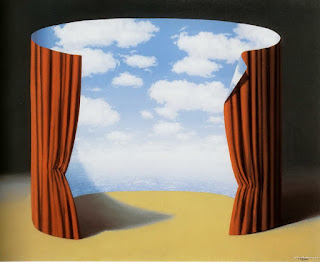The question that I struggle with today is: When do I stop writing? When is it all enough? There always seems to be room for more -- further development of some scene, adding some new material to support what already exists and the most tempting of all, that compulsion to endlessly tweak.
In these moments of indecision, I feel akin to the late, masterful film director Stanley Kubrick who was known to film a single sequence hundreds of times, from an identical angle, searching for a unique spark. I hoard my intentions and stemming from that oscillating confidence, when my conviction is low, I counterbalance that with an instinct for “More.”
I play by my wits as a writer and when nothing that I re-read has that silky flow of good jazz, I panic and battle the impulse to stuff in more content. It is a manic urge and could easily ruin the hard work I have already invested if I am permitted to govern the final part of this writing process when operating from this low ebb.
I need help and have no idea where to find it.
How I wish this instinct to stop was programmed into me when I made the final decision to be a writer. Like a migrating creature, I would simply know when.
Can this sense of temperance be acquired as we write, guided by mere instinct and under the direction of the vision that blocks out the shape of the thing we wish to create? I try to change gears and establish the economy that characterizes an efficient editor. I ask myself questions, sometimes. Mostly, I wing it. This trust in my own instincts has gotten me this far so should it not accompany me to the journey’s end?
Yet this begs the question once more: When have I returned home? Am I still circling the block, unwilling to open the door that will signal completion or has my drained sense of confidence rendered me unwilling to present a finished product?
I soon began to discover that what I should always aspire to as a writer is not excellence but lucidity. When I write for excellence, I write for that rarefied, difficult to please editor and in pursuing this objective, I either lose the taut thread of a clear narrative or I become over-burdened with clever wordplay. Either course is disastrous to the whole.
{Images by Louise Bourgeois}
In these moments of indecision, I feel akin to the late, masterful film director Stanley Kubrick who was known to film a single sequence hundreds of times, from an identical angle, searching for a unique spark. I hoard my intentions and stemming from that oscillating confidence, when my conviction is low, I counterbalance that with an instinct for “More.”
I play by my wits as a writer and when nothing that I re-read has that silky flow of good jazz, I panic and battle the impulse to stuff in more content. It is a manic urge and could easily ruin the hard work I have already invested if I am permitted to govern the final part of this writing process when operating from this low ebb.
I need help and have no idea where to find it.
How I wish this instinct to stop was programmed into me when I made the final decision to be a writer. Like a migrating creature, I would simply know when.
Can this sense of temperance be acquired as we write, guided by mere instinct and under the direction of the vision that blocks out the shape of the thing we wish to create? I try to change gears and establish the economy that characterizes an efficient editor. I ask myself questions, sometimes. Mostly, I wing it. This trust in my own instincts has gotten me this far so should it not accompany me to the journey’s end?
Yet this begs the question once more: When have I returned home? Am I still circling the block, unwilling to open the door that will signal completion or has my drained sense of confidence rendered me unwilling to present a finished product?
I soon began to discover that what I should always aspire to as a writer is not excellence but lucidity. When I write for excellence, I write for that rarefied, difficult to please editor and in pursuing this objective, I either lose the taut thread of a clear narrative or I become over-burdened with clever wordplay. Either course is disastrous to the whole.
{Images by Louise Bourgeois}





















